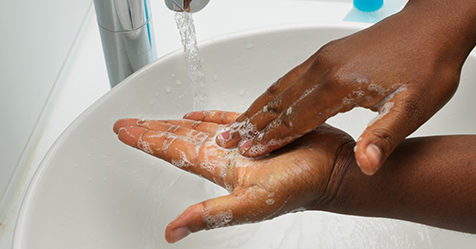Study Examines Perceptions of Reliable Hand Hygiene
First-of-its-kind study looks specifically at insights from clinician subgroups.
Findings from a recent study, published in the American Journal of Infection Control (AJIC) by the Association for Professionals in Infection Control and Epidemiology (APIC), highlight the perceptions of and barriers to reliable hand hygiene among specific clinician subgroups.
According to the publication, the results provide insights that can be used to design and implement future targeted interventions to optimize hand hygiene reliability within health care settings.
“While prior studies focused on challenges to hand hygiene reliability by health care role, we believe our study is the first to highlight key differences in perceived barriers and facilitators by service line and career tenure,” said Ana M. Vaughan-Malloy, MD, MPH, Associate Hospital Epidemiologist at Boston Children’s Hospital, and lead author of the study.
Among the 61 physicians, nurse practitioners, and physician assistants surveyed, 70% perceived hand hygiene as essential to patient safety. While 87% reported alcohol-based hand rub (ABHR) availability as very effective in improving hand hygiene reliability, 77% answered that dispensers were empty either “sometimes” or “often.” Clinicians involved in surgery or anesthesia were more likely than those in other medical specialties to note skin irritation from ABHR and less likely to believe feedback was effective in improving hand hygiene.
One quarter of respondents indicated that the layout of patient care areas was not conducive to performing hand hygiene. Staff shortages as well as work pace and demands precluded hand hygiene for 15% and 11% of respondents, respectively.
According to the study, aspects of organizational culture, environment, tasks, and tools are all barriers to high hand hygiene reliability. Human factors engineering—defined by the U.S. Agency for Healthcare Research and Quality as the consideration of human strengths and limitations in the design of interactive systems—could also be applied to more effectively promote hand hygiene in health care facilities.
“Improving and maintaining hand hygiene compliance has been a long-standing and seemingly intractable challenge in health care,” said Patricia Jackson, RN, MA, CIC, FAPIC, 2023 APIC president. “This study highlights opportunities to improve hand hygiene reliability through effective application of human factors engineering tools and methods.”


